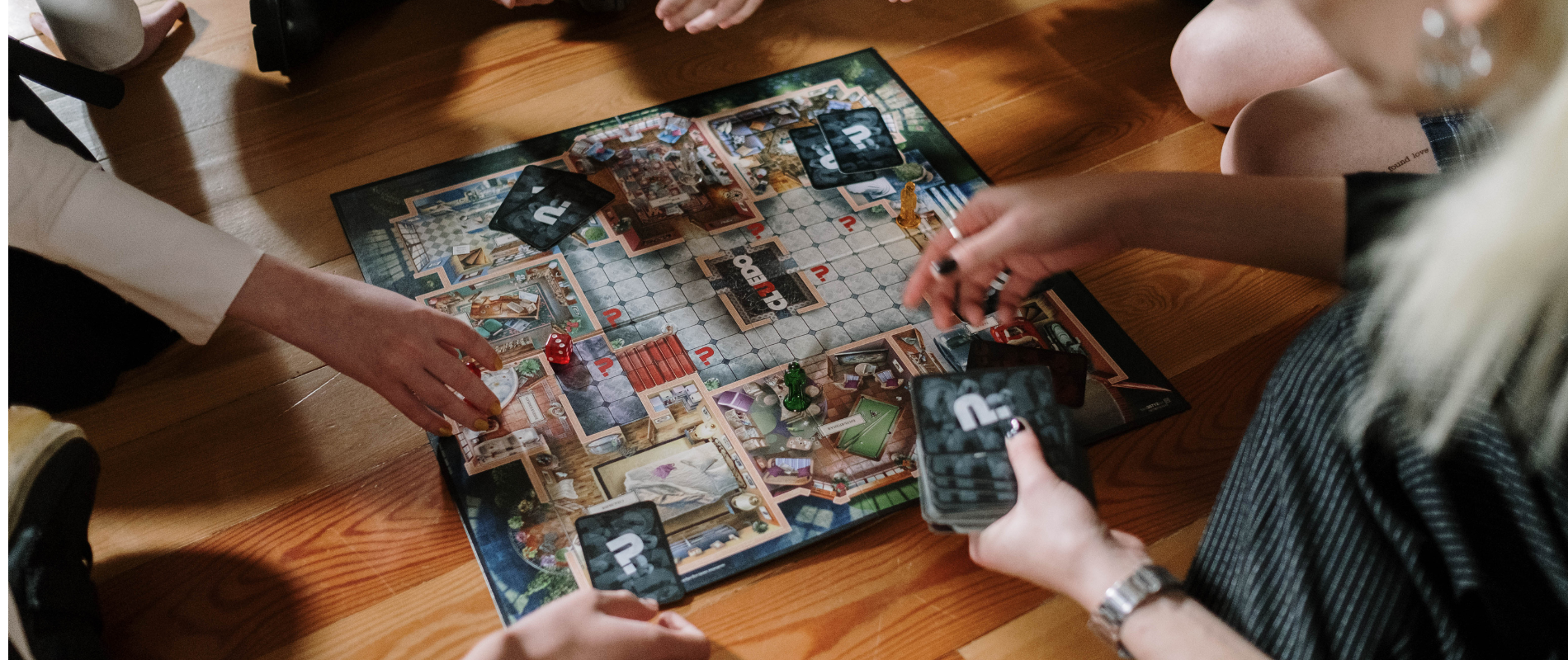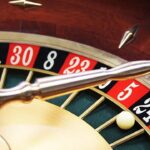Experiencing a significant gambling loss can be a devastating and overwhelming experience, leaving you feeling lost and unsure of how to move forward. However, recovery and rebuilding are possible with the right approach and mindset. In this guide, we’ll explore practical steps and strategies to help you overcome the financial and emotional toll of a big gambling loss, regain control of your life, and set a course toward a more secure and positive future. Join us as we navigate the path to recovery together.
Acknowledging the Impact of Loss
Experiencing a significant gambling loss can be a devastating event, both financially and emotionally. The first step towards recovery involves fully acknowledging the impact of this loss. It’s not just about the money that has been lost; it’s also about understanding the emotional toll it can take on an individual’s mental health and well-being. Recognizing these effects is crucial as it paves the way for developing a constructive and realistic plan to bounce back.
Many people try to immediately brush off their losses, refusing to accept the gravity of their situation. However, this denial can lead to a harmful cycle of chasing losses, which often exacerbates the problem. Acknowledging the loss does not mean dwelling on it but rather accepting it as a fact. This acceptance is a powerful step in preventing further detrimental behavior. It also helps in setting the stage for seeking support, whether from friends, family, or professionals who can provide guidance and assistance in dealing with the consequences of the loss.
Moreover, understanding the impact of a gambling loss extends beyond the individual. It can affect relationships, job performance, and even one’s social standing. The financial strain may lead to tension within households, strained friendships, and increased isolation as the individual might feel embarrassed or ashamed to face their peers. It’s important to consider these broader implications as part of the recovery process. By doing so, strategies can be developed to mend not just the financial gap but also to restore personal relationships and rebuild trust with loved ones.
Further Insights into the Emotional Impact of Gambling Losses
The emotional impact of gambling losses is often profound, affecting not just the gambler but those around them. Feelings of guilt, shame, and regret can dominate, leading to a cycle of negative self-reflection and low self-esteem. For some, these emotions can be overwhelming, hindering the ability to function effectively in daily life. It’s essential to understand these emotional responses to begin healing. Addressing these feelings directly, acknowledging their validity, and seeking ways to cope with them healthily is vital. Professional therapy or support groups can offer a safe space to express these emotions and start the journey towards recovery.
Breaking the Cycle: Steps to Emotional Recovery
- Acceptance: Acknowledge the loss and its impacts without judgment.
- Support: Seek out friends, family, or professionals who can offer understanding and guidance.
- Reflection: Take time to understand the root causes of the gambling behavior.
- Planning: Develop a realistic plan to manage finances and avoid potential triggers.
- Self-care: Prioritize physical and mental health to strengthen resilience against future challenges.
In conclusion, recovering from a significant gambling loss is a multifaceted process that requires acknowledging the full scope of its impact. This understanding is the first step towards developing a comprehensive recovery plan. By embracing the situation openly and seeking appropriate support, individuals can embark on a path to not only financial recovery but also emotional healing and personal growth.
Understanding Your Loss: The First Step to Recovery
Experiencing a significant gambling loss can be a devastating event that impacts not just your finances but also your mental well-being. It’s crucial to approach recovery with a clear head and a strategy that focuses on long-term healing and financial stability. The first step in this journey is understanding your loss. This means taking an honest look at how and why the loss occurred, which can be uncomfortable but is essential for moving forward.
Recognizing the triggers and decisions that led to the loss can help you identify patterns that may need to be addressed. Whether it was a lack of discipline, chasing losses, or not having a set budget, understanding these factors is critical. It’s also important to acknowledge the emotional impact of the loss. Feelings of guilt, shame, or anger are common, but they should not define your path to recovery. Instead, use them as learning points to build a resilient and sensible approach to gambling in the future, if you choose to continue at all.
Finally, it’s essential to set realistic goals for your recovery. Whether it’s taking a break from gambling, seeking professional help, or focusing on rebuilding your finances, having clear, achievable objectives can significantly increase your chances of success. Remember, recovery is a journey, and it’s okay to seek support from friends, family, or professionals who can provide guidance and encouragement along the way.
| Step | Action | Expected Outcome |
|---|---|---|
| 1 | Assess the Situation | Understanding the extent of the loss |
| 2 | Identify Triggers | Recognition of patterns leading to loss |
| 3 | Set Realistic Goals | Clear, achievable objectives for recovery |
| 4 | Seek Support | Access to emotional and practical guidance |
| 5 | Take Action | Implementation of strategies for recovery |
Creating a Financial Recovery Plan
Experiencing a significant gambling loss can be a profoundly unsettling event that shakes the foundation of one’s financial stability. However, the path to recovery, while challenging, is navigable with a well-structured financial recovery plan. The first step in crafting this plan involves a thorough assessment of your current financial situation. This means taking a hard look at all your assets, debts, and recurring expenses to understand the depth of the financial hole and how best to climb out of it.
The next phase is setting realistic financial goals. It’s crucial to have clear, achievable objectives to work towards. This might include repaying debts, rebuilding savings, or even smaller goals like reducing unnecessary spending. Strategies such as creating a strict budget, increasing income sources, and cutting non-essential expenses play a pivotal role in this stage. Budgeting is not just about tracking where the money goes; it’s about allocating resources wisely to ensure that spending aligns with your recovery goals. Additionally, it might be worthwhile to seek professional financial advice or counseling to navigate this recovery process more effectively.
Finally, committing to a no-gambling policy is essential during this period. The temptation to try and win back losses can be strong, but it’s important to remember that this mindset often leads to further financial ruin. Establishing a support system, whether through friends, family, or support groups, can provide the emotional and motivational support needed to stay on the path of financial recovery and avoid future gambling temptations. Remember, recovery is a journey that requires patience, discipline, and a positive outlook.
Devising Strategies for Long-term Financial Health
In addition to immediate recovery steps, focusing on long-term financial health is crucial. This involves not only repairing the damage done but also putting safeguards in place to prevent future financial setbacks. Educating oneself about financial management, exploring investment options for future stability, and continuously monitoring and adjusting one’s budget to reflect changing financial situations are all vital components of ensuring long-term financial well-being.
Understanding the Role of Financial Literacy in Recovery
Financial literacy plays a significant role in both recovering from a gambling loss and in preventing future financial issues. Knowledge about budgeting, saving, investing, and understanding the psychological triggers that lead to excessive gambling can empower individuals to make informed decisions about their finances and lifestyle choices. This education is a cornerstone of building a resilient financial future.
| Step | Action | Goal |
|---|---|---|
| 1 | Assess Financial Situation | Understand Current Standings |
| 2 | Set Realistic Goals | Clear Objectives for Recovery |
| 3 | Create a Budget | Allocate Resources Wisely |
| 4 | Increase Income | Enhance Financial Stability |
| 5 | Seek Professional Advice | Navigate Recovery Effectively |
Seeking Professional and Peer Support
Recovering from a significant gambling loss requires more than just a strong will; it often necessitates seeking both professional help and the support of peers who understand what you’re going through. Engaging with a trained therapist can provide the necessary guidance to navigate through the emotional turmoil and develop healthier coping mechanisms. Additionally, support groups offer a sense of community and empathy, which are crucial for healing. These groups create a safe environment where individuals can share their experiences and learn from others facing similar challenges.
Finding the right therapist or support group can be a pivotal step in the recovery journey. Professionals specializing in gambling addiction understand the complexity of the issue and can offer tailored strategies to overcome it. Meanwhile, peer groups, often facilitated by individuals who have themselves recovered from a gambling problem, provide real-life insights and encouragement. Together, they form a robust support system that can significantly enhance the recovery process.
Joining online forums and attending local meetings can also broaden one’s support network, making it easier to stay on the path to recovery. These platforms allow for the sharing of resources and strategies, further enriching the recovery experience.
Expanding Your Support Network
Expanding your support network by connecting with individuals who have overcome similar obstacles can significantly impact your recovery. These connections can offer new perspectives and strategies that might not be available in your immediate environment. Embracing a diverse range of support can make the journey less isolating and more manageable.
| Resource | Type | Contact Information |
|---|---|---|
| National Helpline | Hotline | 1-800-522-4700 |
| Gamblers Anonymous | Support Group | www.gamblersanonymous.org |
| Therapy for Gambling Addiction | Professional Help | Local Listings |
| Online Support Forums | Community | Various URLs |
| Self-Help Books | Education | Local Bookstores/Online |
Establishing Healthier Coping Strategies
Recovering from a significant gambling loss requires a shift towards healthier coping strategies. This process begins with the acknowledgement of the problem and the willingness to seek help. It’s essential to understand that gambling addiction, much like any other form of addiction, can have a profound impact on mental health and wellbeing. Therefore, finding alternative ways to cope with stress, anxiety, or depression becomes crucial.
One effective approach is to engage in activities that promote physical wellbeing, such as exercise or sports, which can significantly improve mood and reduce stress levels. Additionally, cultivating hobbies that are not related to gambling can provide a sense of accomplishment and joy. It’s also beneficial to establish a support network of friends, family, or professionals who understand what you’re going through and can offer the necessary support and guidance.
Moreover, setting realistic goals and celebrating small achievements along the recovery journey can boost self-esteem and motivation. Developing financial management skills is also key in preventing future gambling losses and regaining control over one’s life. It’s about creating a balanced lifestyle where gambling no longer serves as a coping mechanism but is recognized for the risk it poses.
Further Insights on Healthier Coping Mechanisms
Exploring the Depth of Alternative Coping Strategies
| Coping Strategy | Benefits | Examples |
|---|---|---|
| Physical Activity | Improves mood, reduces stress | Running, yoga, swimming |
| Hobbies | Provides joy, sense of achievement | Painting, reading, gardening |
| Support Networks | Offers support, reduces feeling of isolation | Family, friends, support groups |
| Goal Setting | Boosts self-esteem, provides direction | Short-term and long-term goals |
| Financial Management | Prevents future losses, restores control | Budgeting, savings plans |
Setting Realistic Goals for the Future
After experiencing a significant gambling loss, it’s essential to take a step back and reassess your financial and personal goals. The path to recovery involves setting realistic expectations and creating a structured plan to follow. Begin by evaluating your current financial situation, acknowledging the impact of the loss, and understanding that recovery is a process that will require time and patience.
Creating a budget that includes savings, even if they are minimal at first, is a crucial step towards financial recovery. It’s important to set achievable goals that can provide a sense of accomplishment and motivation to continue forward. For example, instead of aiming to recoup all losses immediately, focus on smaller, attainable objectives such as saving a particular amount each month or reducing unnecessary expenses.
Additionally, consider seeking professional help if you feel overwhelmed. Financial advisors and counselors can offer valuable advice and support. Rebuilding after a loss is not just about financial recovery but also about regaining a sense of control and making decisions that contribute to long-term well-being. Therefore, setting realistic goals for the future is about balancing hope with the practical aspects of your current situation.
| Goal | Target Date | Steps to Achieve |
|---|---|---|
| Create a Budget | 1 Month | Review expenses, identify savings opportunities |
| Save $500 | 6 Months | Set aside a small portion of income regularly |
| Reduce Debt | 1 Year | Prioritize high-interest debt, make extra payments |
| Seek Professional Help | As Needed | Research and contact financial advisors or counselors |
| Rebuild Emergency Fund | 2 Years | Gradually increase savings as debt decreases |
In conclusion, recovering from a significant gambling loss is undoubtedly challenging but not impossible. By setting realistic goals and taking actionable steps towards achieving them, you can begin to rebuild your financial health and regain control over your life. Remember, the journey to recovery is a marathon, not a sprint. Patience, discipline, and a positive outlook are essential components of your success.
It’s crucial to acknowledge the lessons learned from the experience and use them as a foundation for a brighter, more financially secure future. With determination and the right strategy, you can navigate the path to recovery and emerge stronger on the other side.
Laura Johnson is a seasoned board game strategist with a knack for blending game theory and betting insights. With over a decade of experience in the gaming community, Laura excels in analyzing game mechanics and predicting outcomes, both on the board and in betting scenarios. Her expertise extends to helping players enhance their strategies, whether they’re competing in a game night or placing bets on game-related outcomes. Laura’s unique approach makes her a valuable resource for those looking to elevate their gaming and betting experiences.







